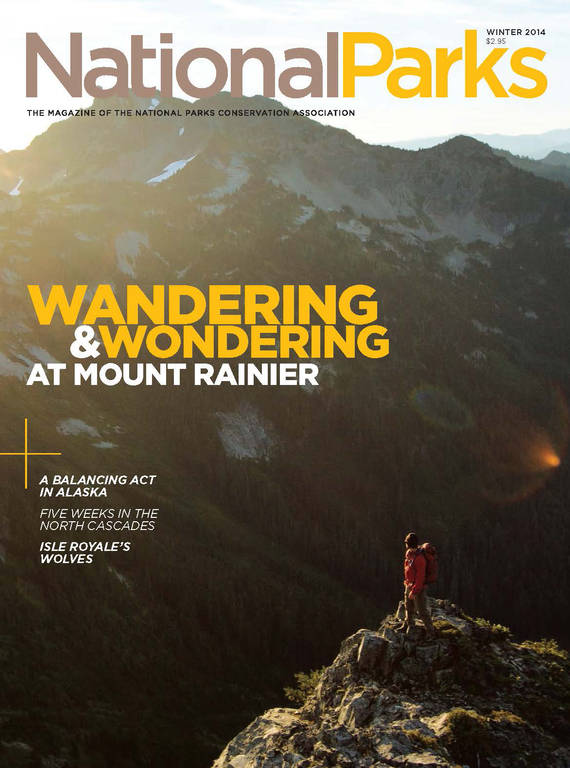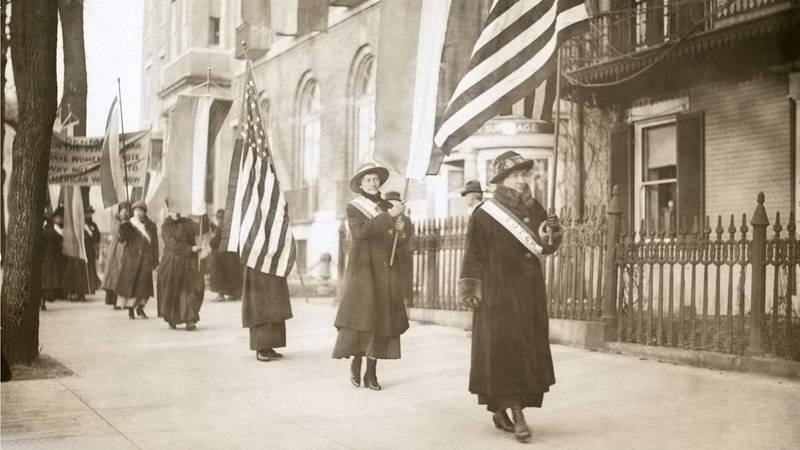Winter 2014
Divine Providence
The 17th-century minister Roger Williams risked his life to be the first American to preach religious freedom.
New England winters have always been harsh but the winter of 1635−36 was legendary. Snow piled up in heaps outside the Puritans’ drafty wooden homes, the wind howled at their doors, and sub-zero temperatures froze Rhode Island’s Narragansett Bay—a rare sight. Nevertheless, deep into the January freeze, Roger Williams, a firebrand English preacher, struck out into the wilderness.
Williams knew that a band of soldiers was stomping through the woods to arrest him and put him on a ship bound for England, where the grisly prospect of a short life in prison awaited. What was his abominable offense? Speaking his mind.
“He thought for himself and that was dangerous,” says John M. Barry, author of Roger Williams and the Creation of the American Soul. Williams championed ideas that, in those days, were outrageous: He believed in the separation of church and state and the inviolable right of a person to live by his own conscience.
WORDS WITH FRIENDS
Williams survived the winter of 1636 by the grace of the Wampanoag chief Massasoit, who sheltered him and gave him land. The outspoken minister went on to found the city of Providence and later the state of Rhode Island. Even though Williams endured persecution for his thinking and died in poverty, the values he espoused formed the foundations of the first charter of Rhode Island; the charters of New Jersey, the Carolinas, and Pennsylvania; and, eventually, the Bill of Rights.
“The ideals here were known throughout the colonies,” says John McNiff, chief of interpretation at Roger Williams National Memorial. “The first amendment of the Constitution reflects [those ideals] and Williams’ ideas on religion and personal freedom. It’s not just a listing of important rights, it is a definition of free people.”
Roger Williams was born to a middle-class family in London sometime between 1603 and 1606, a tumultuous era in English history. Queen Elizabeth I had died, and, as King James ascended to the throne, England simmered with religious and political turmoil. As a boy, Williams likely witnessed men burning at the stake for their religious views.
Williams was unusual from a young age. As a kid, he picked up French and Dutch from neighborhood immigrants and learned shorthand, a valuable skill that caught the eye of the famous jurist and champion of civil rights, Sir Edward Coke, who sponsored the young man’s education. Williams was not only charming, intelligent, and curious, he became extraordinarily pious. After graduating from Cambridge, he abandoned his graduate studies in ministry for reasons of conscience: He believed the Anglican Church was corrupted by politics, and he was edging perilously closer to Puritanism.
England was a dangerous place for dissenters, so in December of 1630, Williams and his wife, Mary, fled on a ship bound for the New World, where Williams started ruffling feathers almost immediately. He refused a post as minister at the Boston church because he believed it was too tied to the Anglican tradition, which he considered tainted. In his quest for a pure church, he noticed that religious institutions were easily sullied by politics, which led him to believe that civil and religious matters should be separate—a view he didn’t shy away from expressing, even at great risk. Williams also thought that no government should compel a person to live by another’s spiritual beliefs. “Forcing of conscience is soul-rape,” he wrote, an unusual and early plea for individual rights.
“You have to give him credit for his original thinking,” says J. Stanley Lemons, author of Rhode Island: The Independent State. “Everywhere, everybody believed that if you didn’t have one religion, you’d have a civil war. Williams was reflecting on the fact that rivers of blood were being shed in the name of religion.”
The preacher’s natural intelligence and compassion did endear him to one group—the Indians, whom he befriended by learning their languages and customs. Not only did they harbor him in exile, the Narragansett also sold him land, which he and his 30 followers used to found Providence, the first society in the New World based on religious liberty.
Williams’ willingness to express his views didn’t earn him accolades during his life, but his ideas did influence others, among them John Milton and likely Oliver Cromwell, a friend. After he died in 1683, his grave was forgotten and many of his sermons were lost. No one can be sure if James Madison had read Williams’ papers when he wrote the Bill of Rights. But the hallowed First Amendment—which establishes the separation of church and state and the right of individuals to practice a faith—distinctly echoes Williams’ most passionate ideas, ideas that are still debated in politics and the courts today.

National Parks
You can read this and other stories about history, nature, culture, art, conservation, travel, science and more in National Parks magazine. Your tax-deductible membership donation of $25 or more entitles…
See more ›“The last 20 years or so, the argument over the proper relationship between church and state has been increasing in intensity,” says Barry. “To understand the concept of freedom, to understand the concept of individualism, to understand the original views of separation of church and state—to really understand any of those things and what they mean today—you need to understand how they started.”
Today, Roger Williams’ life and ideas are celebrated at the Roger Williams National Memorial, housed in a small 18th-century farmhouse—built long after the preacher died—in downtown Providence. Visitors can see replicas of some of Williams’ possessions, including a copy of the Bible in the Algonquin language; watch video documentaries about religious freedom; and tour the memorial’s 4.5-acre park, which was the site of Williams’ original settlement and now has a garden with plants that the colonists first cultivated, such as wild marjoram, spearmint, and violets.
Visitors can even sit by the freshwater spring used nearly four centuries ago by Native Americans and early European colonists. There, even amidst the din of urban Providence, it’s not hard to imagine the 17th-century visionary himself stooping down to refresh himself for the struggle ahead.
About the author
-
 Kate Siber
Kate SiberKate Siber, a freelance writer and correspondent for Outside magazine, is based in Durango, Colorado. Her writing has appeared in National Geographic Traveler and The New York Times. She is also the author of “National Parks of the U.S.A.,” a best-selling children’s book.



